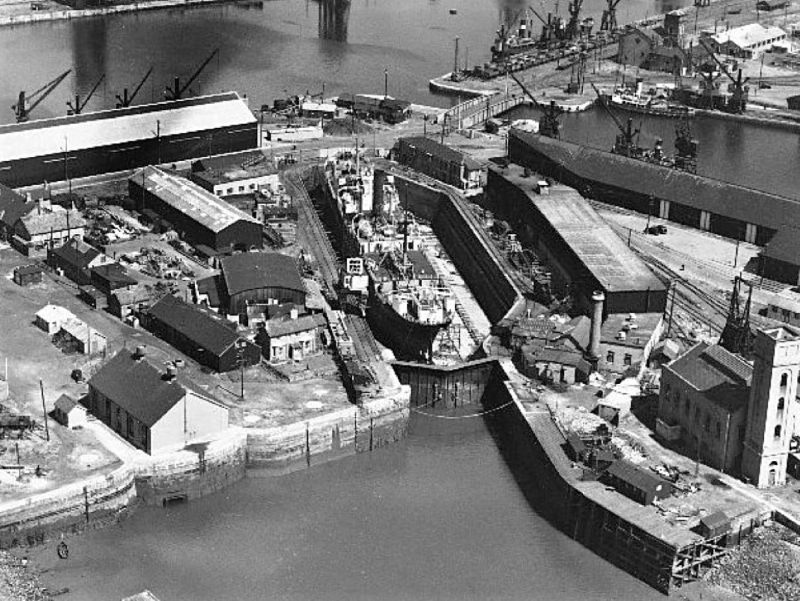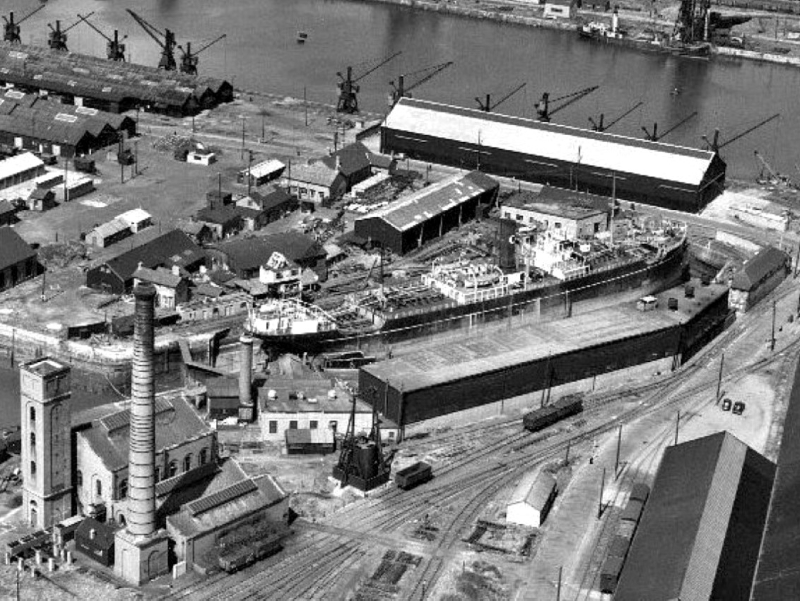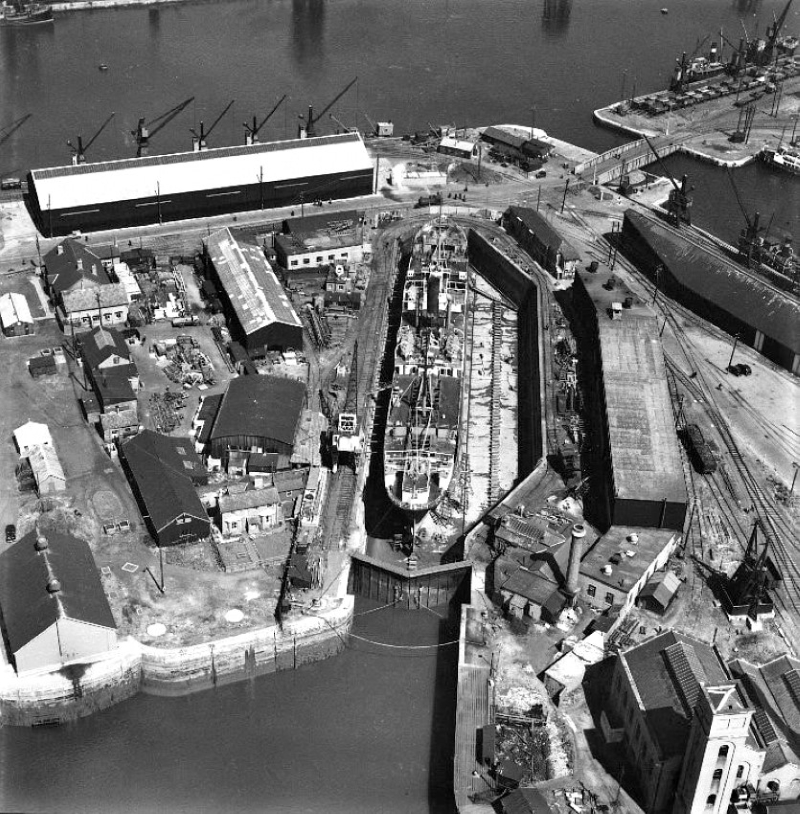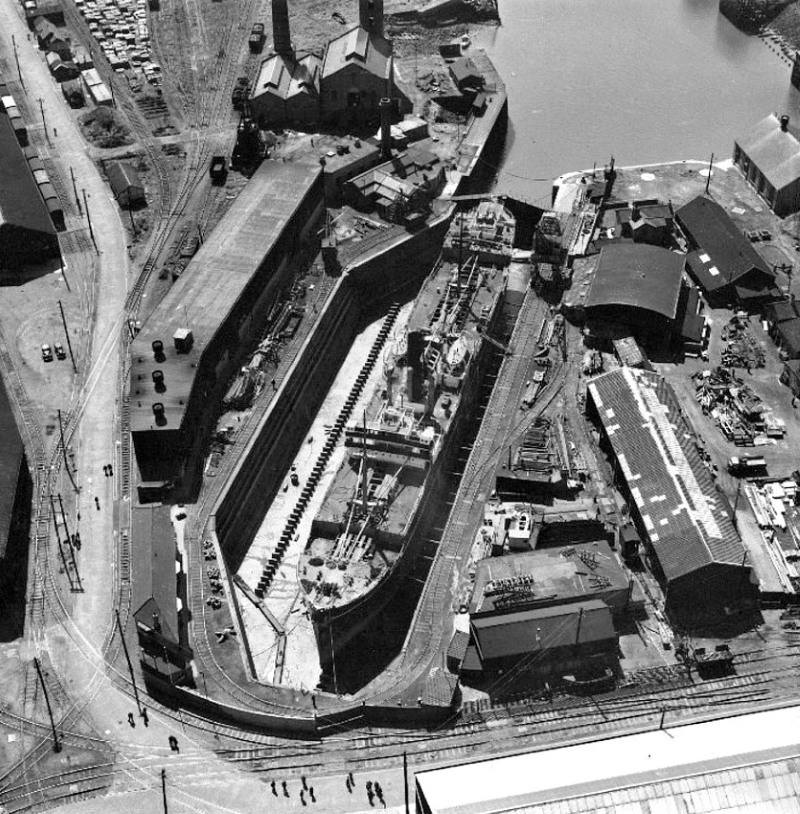W J Bendall, General Manager of the Prince of Wales Dry Dock from its inception in 1899, was made a Director of the company in 1924. To mark the occasion a Celebratory dinner was held in his honour. Below is the company's description of the occasion and their own history:
Mr. W J Bendall served his apprenticeship at the Marine Department of the Great Western Railway Company at New Milford. He then spent four years at sea as Second and Chief Engineer, after which he look up the position of Foreman Engineer with Messrs. E Lace & Son, Engineers, Cardiff. Another six years were spent at sea as Chief Engineer in Steamers owned by Messrs. Tellefsen Wills & Co., Cardiff. He was then appointed Foreman Engineer with Messrs. Lace, Wills & Co., Ltd., Barry Dock, and after three years in this position he was promoted to the post of Under Manager, which he held for four years.
In October, 1896 Messrs. Lace, Wills & Co. were taken over by the Barry Central Marine Engineering Co., Ltd. Mr. Bendall's services as Manager being retained. In April, 1899, Mr. Bendall was appointed General Manager of the Prince of Wales Dry Dock Co. (Swansea), Ltd., and he has served the Company in this capacity for a period of twenty-five years.
THE PRINCE OF WALES DRY DOCK was opened on May 3rd, 1899, supplying a long felt want at the Port of Swansea, the Directors of the Company being Mr. Arthur Mawson (Chairman), the late Alderman Mark Mordey, J.P., the late Mr. Win. Watkin Jones, the late Mr. Thos. Barraclough, the late Mr. Phillip Morel, and Messrs. T J Reeves, J Primrose Lindsay and T P Rose Richards, with the late Mr. W J Frazer as Secretary and our guest of this evening, Mr. W J Bendall, m.i.m.e., as General Manager.
The Company was very successful after its inauguration for a few years when, unfortunately, a severe depression in shipping took place and it was only by the great personal sacrifices rendered by the Directors that the critical period was overcome. With the opening of the King's Dock at Swansea in 1909 the policy of the Directors in previous years bore fruit and since then the Company has made great progress. Early in 1912 the Company suffered very severe losses owing to the deaths of Mr. W J Frazer, Secretary, and Mr. A D Sproat. The Accountant Mr. Arthur Parkes was appointed Secretary in July, 1912, and his personality and business acumen have enhanced the reputation of the Company as being one of the most up-to-date firms in the Channel.
Shortly after the outbreak of the Great War, the Company became a Controlled Establishment under the Munitions of War Act, 1914, and was controlled by the Director of Ship Repairs. Many notable repair jobs were carried out successfully by the Company with the valuable co-operation of the foremen and workmen, who realised the necessity of doing their utmost to counteract the German submarine menace. One outstanding feature was the repair of the s/s "CAPE CORSO," which is dealt with more fully elsewhere.
On the cessation of hostilities the Lords Commissioners of the Admiralty and the Shipping Controller expressed their appreciation of Mr. Bendall for the work executed under his supervision during these anxious and strenuous times. One very pleasing feature of the Company is that we retain our customers, a fact which goes to prove that the work is carried out economically and satisfactorily.
During the last four years no less a sum than £20,000 has been spent in bringing the equipment of the dock thoroughly up-to-date as a result of which we are now fully capable of carrying out repairs required on the newer type of vessels trading to the port: The works have been completely electrified, and a new electric crane, capable of lifting 25 tons, has been installed. The forward policy of the Directors will, without doubt, maintain the prestige which the dock has so long enjoyed.
The relationship between the Management and Employees has been excellent and it is evident that the Staff and Workmen have a more than ordinary interest in the welfare and further, success of the Company. While we look back with satisfaction on the past, there is no reason to fear as to the future of the Company knowing that the splendid tradition will be carried on by our new General Manager and Secretary and new Works Manager.
Mr. Bendall, after twenty-five years service as General Manager, has been elected to a seat on the Board of Directors, an honour richly deserved, and it is a source of great satisfaction to all to know that his great experience and valuable advice will not be lost to the Company. We trust that he and Mrs. Bendall will enjoy many years of good health and that Mr. Bendall's promotion will bring him that leisure time which we know will be used to the fullest advantage. He has the great satisfaction that he has always enjoyed and will continue to enjoy the greatest respect and affection of all connected with the Prince of Wales, Dry Dock.
One of the most notable repair jobs executed in the Bristol Channel was that carried out by the Prince of Wales Dry Dock Company in connection with the s/s " Cape Corso" (3890 gross tons) of Glasgow. In November, 1917, the s/s "Cape Corso" was towed into Swansea as a result of having been torpedoed on both sides in way of the engine and boiler room, the upper portion amidships being practically destroyed. After floating in the river a few times, she collapsed and broke amidships, so that her bow and stern were forced above their normal positions.
The injured portions of the vessel were then secured with plates, angles, etc., with a view to avoiding any further damage which would prevent the ship from being placed on the blocks in the dry dock. The vessel was actually dry docked on February 1st 1918, and immediately she took the blocks amidships, it was observed that, by comparison with the draught of water in the dock and the marks on the ship, the after end was up 9 ins, while the forward end was 3ft. 6 ins. When there was still 8-ft. of water in the dock, the temporary plates, angles, etc., commenced to break, and then following a loud report, the midship portions parted and the vessel dropped into the exact position arranged for.
The subsequent repairs carried out on the s/s " Cape Corso " proved to be one of the most difficult jobs executed in the Bristol Channel as it was necessary to remove the main engines, three boilers and all auxiliary machinery, the vessel in fact being entirely reconstructed amidships. Great satisfaction was expressed by the Admiralty Representative at the manner in which the ship had been dry-docked under such extraordinary circumstances, and with the carrying out of the extensive repairs.
Arthur Mawson
W. J. Bendall
Invitation to the Presentation Dinner
Menu
Entertainment program

















